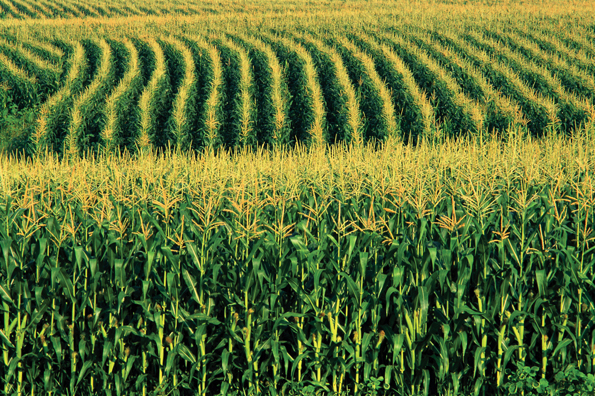| Upcoming Events: June 8: Wheat Variety Tour, 6:30-8 p.m., Mark Knobel Farm, Fairbury, https://croptechcafe.org/wheatplottour/ June 9: Living Room Learning: Food + Science, 10 a.m., Register: http://4h.unl.edu/living-room-learning June 9: Precision Nitrogen and WestBred Plot tour, 6:30-8 p.m., near Clatonia, https://croptechcafe.org/wheatplottour/ June 14: BQA Certification Training, Albion. RSVP required for meal. Call 308-536-2691 or email brad.schick@unl.edu June 15, 22, 29: Webinar-Dealing with Conflict for Farm and Ranch Families, 3:30-5 p.m., Register: https://wia.unl.edu/conflict-dynamics June 15: Crop Science Investigation (CSI) for youth, 4:45-5:45 p.m., RSVP to jrees2@unl.edu June 17: Question, Persuade, Refer (QPR) Suicide Prevention Training, 2 p.m., https://go.unl.edu/qpr21 June 23: SCAL Weed Management Field Day, Clay Center June 30: Glyphosate resistant palmer amaranth field day, Carleton June 30: Haskell Ag Lab Family Field Day, Concord |
Driving to look at some on-farm research fields in Seward county last week, I came over the hill to see the flags lining Highway 34 at the cemetery. This time of year, when flags are set out lining streets in towns and at cemeteries, never ceases to get me. In that moment, with chills and tears, I said a prayer of gratitude for our Country, for our beautiful flag, for our freedoms and those who gave all for my freedom, and for living in this great Country. In spite of everything going on in the world, and in spite of how differently people view freedom and what’s happening, we still are so blessed to live in this Country! Many service members recall their battle buddies who never came home with them. Many military families throughout history have walked alongside the families left behind. Freedom truly is not free! So this Memorial Day, may we remember and be grateful for those who paid the ultimate sacrifice for our freedom, may we remember and be grateful to those families left behind, and may we keep praying for our Country and leaders, military members and their families.
Alfalfa weevils have been heavy this year. For those with alfalfa, you may have noticed the tops of your plants turning a grayish/brown color. The culprit is most likely alfalfa weevil larvae. They are green caterpillars with a white stripe down the back and dark head. They are often hard to find as they will go down to the crowns of plants in heat of day. By the time you read this, the alfalfa will most likely be put down. What you may observe: once the alfalfa is put down, the weevil larvae will continue to feed. The area under the windrows will turn brown as they feed on the regrowth. As soon as the alfalfa is baled, we’d recommend using an insecticide to kill the larvae and allow the alfalfa to regrow. I’m still seeing all stages of larvae in the field. Highly effective insecticides for alfalfa weevil control include those that are pyrethroids (active ingredient ends in “thrin”, such as Permethrin) and products containing indoxacarb (e.g., Steward). Each field situation may be different, though, so watch the regrowth. If it’s greening up and you’re not finding weevil larvae, they may have pupated and treatment may not be necessary.



Nebraska Land Link provides opportunities to connect land seekers with retiring landowners. Land access is one of the biggest challenges facing aspiring and beginning farmers. For some landowners, they simply do not have the next generation available to take over their operation. Nebraska Land Link is a project of Nebraska Extension’s Farm and Ranch Succession and Transition program and Nebraska Women in Agriculture. When you apply to Nebraska Land Link, either as a land seeker or a landowner, Nebraska Extension personnel will work to match your application with the most compatible counterpart. Using the answers you submit and offer in a potential interview, Nebraska Land Link matches are based on the shared values, interests and skills of both parties, so that a mutually beneficial and satisfying partnership can be forged over the course of the transition plan. You can learn more about the program at: https://farm.unl.edu/landlink and watch a short 3 minute introductory video at: https://go.unl.edu/8sv6.
Ash Trees Losing Leaves: The past few weeks I’ve received questions about ash trees losing leaves. Because of the weather conditions, anthracnose on shade trees, including ash, is fairly prevalent. It’s crazy how I didn’t take any pictures when looking at any of these trees…but what you will see are small dark spots on the leaves. The leaves may curl and turn yellow-green in color before dropping. There’s nothing you should do and a new flush of leaves will appear in time.
York Co. Progressive Ag Safety Day has been postponed to June 14, 2022.
Dealing with Conflict Dynamics for Farm and Ranch Families Course: Conflict and tension often arise in family farms and ranches. This new course strives to provide Nebraskans with tools to build a better culture. Participants will gain the skills and resources necessary to overcome the conflict that may be hampering their family and business relationships. The course will be taught by renowned farm family coach Elaine Froese and hosted by Nebraska Extension’s Women in Agriculture Program. The Conflict Dynamics Training is a three-part course that will be held virtually from 3:30 to 5 p.m. Central time on June 15, 22 and 29, via Zoom. An internet connection is required, and participants should plan on attending all three sessions. Participants in this course will take a Conflict Dynamics Profile assessment to measure their personal conflict behaviors. The profile will help participants understand how they respond to conflict, what triggers can escalate conflict and how to manage conflict more effectively. Froese will then guide participants through a discussion on how to deal with conflict and tension on the family farm or ranch. The course fee is $35 per participant and the class size is limited to 20 people. Registration closes June 11. Because of the sensitive nature of the course, it will not be recorded. Registration is open at https://wia.unl.edu/conflict-dynamics.




































